Manage differences responsibly, ASEAN foreign ministers tell global powers
To develop a more coordinated regional response to economic headwinds and rising trade tensions, ASEAN foreign and economic ministers are set to hold a joint meeting in October ahead of a leaders' summit.
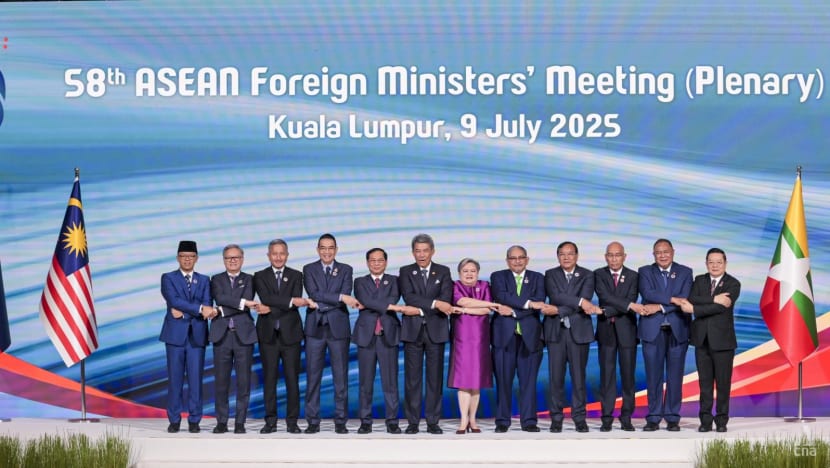

This audio is generated by an AI tool.
KUALA LUMPUR: Top diplomats of the 10-member Association of Southeast Nations (ASEAN) urged major powers to manage “their differences in a constructive and responsible manner”, said Malaysian Foreign Minister Mohamad Hasan after three days of meetings in Kuala Lumpur on Friday (Jul 11).
“To ensure that the region remains peaceful, stable and prosperous, we underscored the importance of dialogue and cooperation through ASEAN platforms with (a) focus on commonalities rather than differences,” he told the media at the end of the 58th ASEAN Foreign Ministers’ Meeting in Kuala Lumpur.
The meetings took place amid geopolitical and trade uncertainties as US President Donald Trump announced revised tariffs on countries, including those in Southeast Asia.
To develop a more coordinated regional response to economic headwinds and rising trade tensions, ASEAN foreign and economic ministers are set to hold a joint meeting in October ahead of the ASEAN Summit, said Mohamad.
“Politics and economy now go hand in hand. We are not going to separate them,” he said.
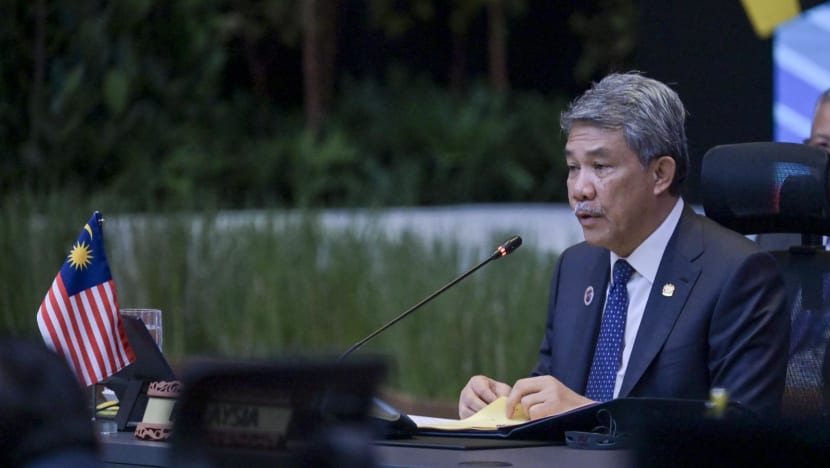
The event and related meetings saw United States Secretary of State Marco Rubio, China’s Foreign Minister Wang Yi, Russia Foreign Minister Sergey Lavrov, United Kingdom Foreign Secretary David Lammy and Australia Foreign Minister Penny Wong among high-level attendees.
With Trump’s latest tariff announcements, Malaysia – this year’s ASEAN chair – now faces a 25 per cent tariff from Aug 1, Laos and Myanmar 40 per cent, Cambodia and US ally Thailand 36 per cent, and Indonesia 32 per cent.
Last week, Trump announced Vietnamese goods would face a 20 per cent tariff and trans-shipments from third countries through Vietnam will face a 40 per cent levy.
On Thursday, the Philippines and Brunei received letters informing of tariff rates of 20 per cent and 25 per cent, respectively.
Malaysia Prime Minister Anwar Ibrahim had slammed the tariffs in his speech as the meetings opened, saying “tools once used to generate growth are now wielded to pressure, isolate and contain”.
"Tariffs, export restrictions and investment barriers have now become the sharpened instruments of geopolitical rivalry," Anwar said, without specifically naming the US.
He also urged ASEAN foreign and economic ministers to work more closely together to tackle the rising trade tensions.
ASEAN secretary-general Kao Kim Hourn told news agency Bernama on Friday that the date of the joint foreign and economic ministers in October has not been fixed, but it will be before the leaders' summit scheduled to take place in Kuala Lumpur from Oct 26 to 28.
He added that member states have held six rounds of discussions focussed on the impact of US trade policies and other global economic shifts.
He said ASEAN is now actively working to eliminate non-tariff barriers to realise the vision of a single market. While the US remains an important partner, ASEAN’s trade diversification strategy is strong, with free trade agreements with China, Japan, Korea, India, Australia and New Zealand, Kao told Bernama.
Intra-ASEAN trade and investment continue to grow, he added.
Asked about Malaysia balancing its relationships with the US and China, minister Mohamad said that as a trading nation, the country could not be seen as leaning towards any side.
“The US is the largest investor in our country and China has (been) our largest trading partner for many years,” he said.
“We have to navigate our foreign policy, even for that matter ASEAN foreign policy, so that we are not seen to be leaning towards anybody. We are a zone of peace. We are neutral and we balance it properly.”
When asked how difficult it was for ASEAN to be neutral, he said that being neutral was the best thing to do.
He added that the bloc however did take positions on issues such as Gaza or Israel's attack on Iran because they were violations of international law.
When asked if the bilateral spat between Thailand and Cambodia was discussed during the meetings, Mohamad said it was not.
“That is their internal affairs. (According to) the ASEAN charter, it is not to interfere in the internal affairs of any country,” he said.
The neighbours have been at loggerheads since a Cambodian soldier was killed in late May as troops exchanged fire in a disputed border region.
Ties have worsened since a leaked phone conversation in June between then Thai Prime Minister Paetongtarn Shinawatra and former Cambodian leader Hun Sen caused an uproar in Thailand and led to her suspension as the country’s leader.
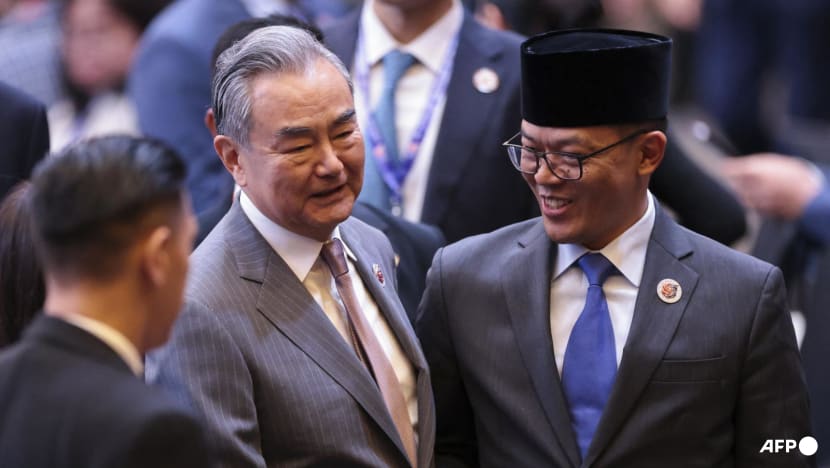
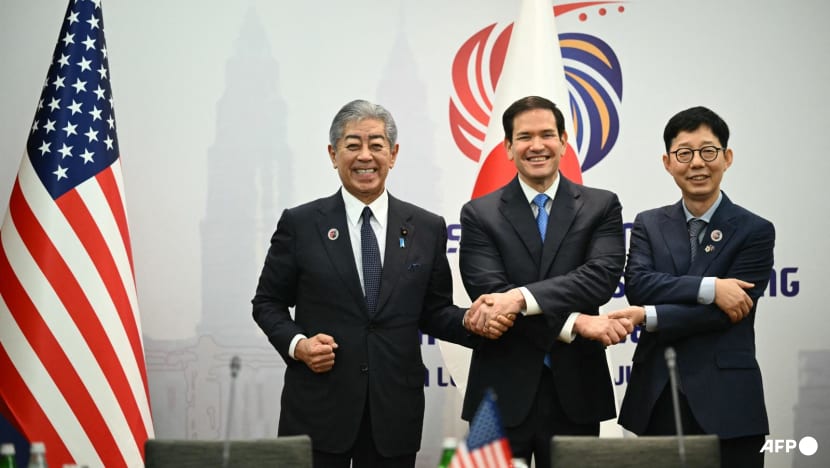
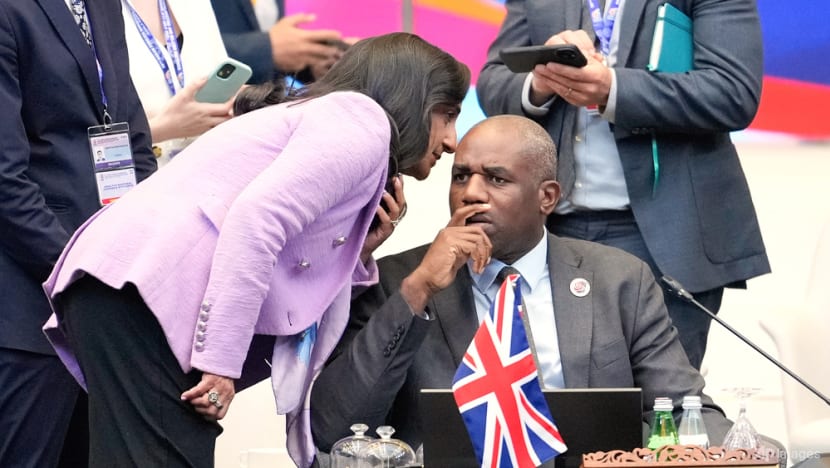
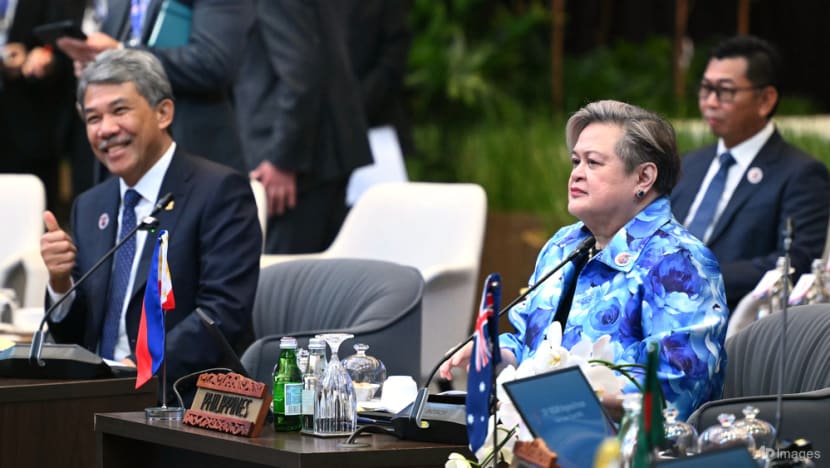
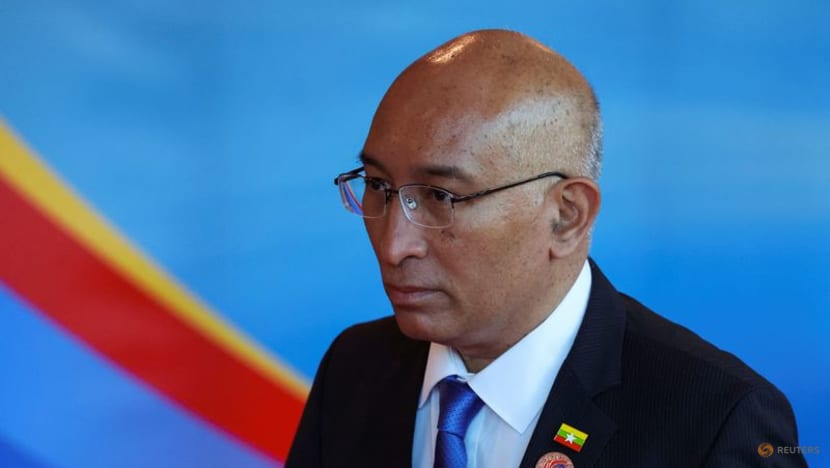
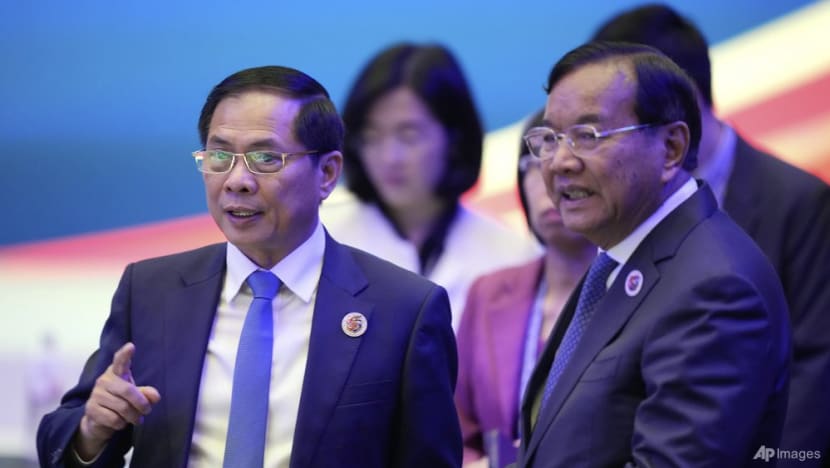
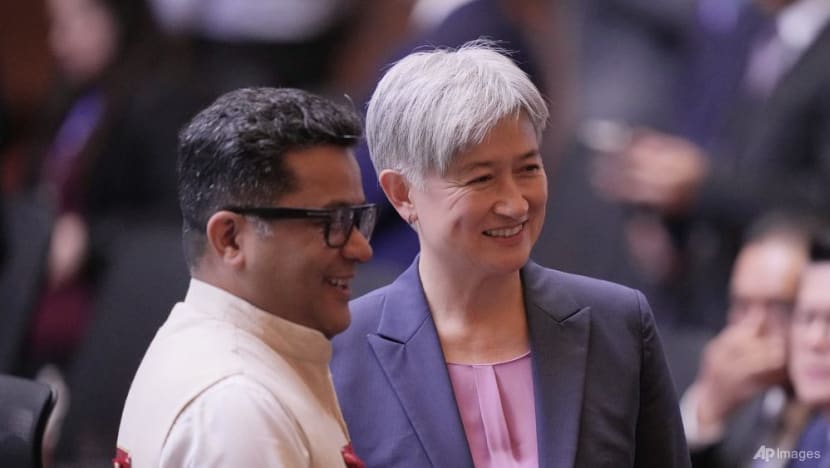
ASEAN SUPPORTS “ALL EFFORTS TOWARDS PEACE”
Key meetings that took place on Friday, the final day, included the 15th East Asia Summit Foreign Ministers’ Meeting and the 32nd ASEAN Regional Forum Foreign Ministers’ Meeting.
Both meetings included the 10 ASEAN members and key partners such as the US, Russia and China.
In his East Asia Summit opening remarks, Mohamad made a call for “decisive actions to end all conflicts” guided by the principles of justice, fairness, equality and humanity.
He said ASEAN welcomes and supports all efforts towards peace, including in Ukraine and the Middle East, based on international law.
The “unjust and illegal occupation of the Palestinian Territory”, which he called the “longest conflict of modern history”, must be brought to an end, he told representatives of the 18 members of the East Asia Summit.
“Eighty years of impunity have emboldened Israel to the extent of openly committing genocide, including through mass starvation that includes babies and children. This is unacceptable. It must not be allowed to continue. It must stop,” he said.
Indonesian Foreign Minister Sugiono also highlighted the conflict in Gaza, saying the “ongoing genocide” there was a clear reminder of what happens when fundamental principles of respect for sovereignty and territorial integrity are ignored.
As geopolitical tensions intensify, there is a need to reinforce the foundation of peace in the Indo-Pacific. This, he said, meant a steadfast commitment to the United Nations (UN) Charter and international law.
At the ASEAN Regional Forum, an Asia-Pacific-wide security dialogue with 27 participating countries, Mohamad cited maritime tensions, cyber threats and climate change as the region’s most pressing challenges.
The forum “must be better equipped to respond swiftly and effectively”, he said.
“Beyond dialogue, it should play a stronger role in early warning and response, especially in humanitarian crises, health emergencies, and conflict prevention,” he added.
“Malaysia calls for stronger cooperation through joint projects in key areas, such as, maritime security, counter-terrorism, and disaster preparedness, and better coordination with other ASEAN-led platforms.”
TARIFFS POSE COMPLEX CHALLENGES, SAY ASEAN MINISTERS
In their joint communique issued on Friday, ASEAN Foreign Ministers expressed “concern” over rising global trade tensions and growing economic uncertainties, particularly “unilateral actions relating to tariffs”.
Tariffs are counter-productive, risk exacerbating global economic fragmentation and pose complex challenges to ASEAN’s economic stability and growth, they said.
They called for a predictable, transparent, inclusive and rules-based multilateral trading system with the World Trade Organization at its core.
In the 32-page document, the ASEAN foreign ministers also expressed concern over the “growing risks of nuclear danger and conflict” and expansion and modernisation of nuclear arsenals.
Last month, Israel and the US attacked Iran’s nuclear facilities but Israel said this week that some of Iran’s stockpile of near-bomb-grade enriched uranium survived the attacks and may be accessible to Iranian nuclear engineers.
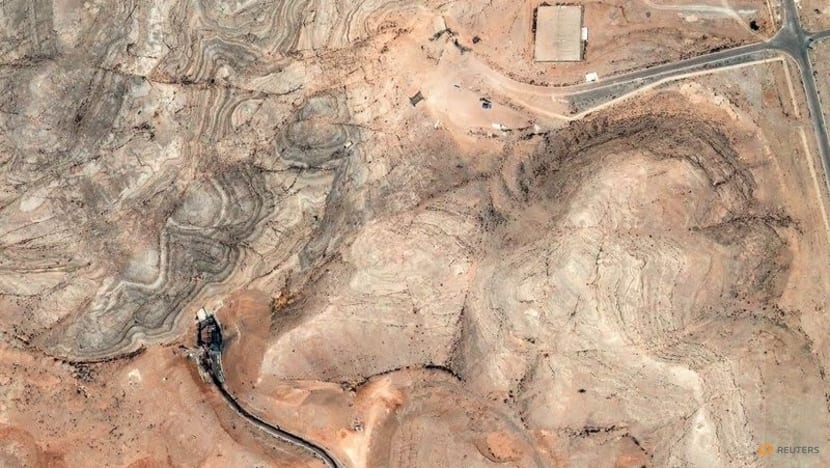
Progress on nuclear disarmament is urgently needed, the ASEAN ministers stressed, as well as strengthening of the commitment to a world free of nuclear weapons amid the heightened geopolitical tension.
They also reiterated the commitment to preserve the Southeast Asian region as a nuclear weapon-free zone and free of all other weapons of mass destruction as enshrined in the the Treaty on the Southeast Asia Nuclear Weapon-Free Zone and the ASEAN Charter.
The wide-ranging communique also touched on conflict in Myanmar, the situation in the South China Sea and the humanitarian situation in Gaza, among other issues.
The ministers expressed “deep concern” over the escalation of conflicts and humanitarian situation in Myanmar, and encouraged progress on the implementation of the five-point consensus aimed at a peaceful resolution.
On the South China Sea, some foreign ministers raised concerns on land reclamations and “serious incidents” in the area that have damaged the marine environment and increased tensions.
All ministers emphasised the importance of non-militarisation and self-restraint in the conduct of all activities by claimants and all other states. They welcomed the completion of the third reading of the Single Draft Code of Conduct in the South China Sea negotiating text.
On Gaza, they expressed grave concern over the “dire humanitarian situation” and called for an immediate and permanent ceasefire and the immediate release of all hostages.
“We reaffirmed our longstanding support for the inalienable rights of the Palestinian people, including the rights to self-determination, and to their homeland,” they said, urging parties to work towards a peaceful resolution, with a view to realising the two-state solution in accordance with international law.

















